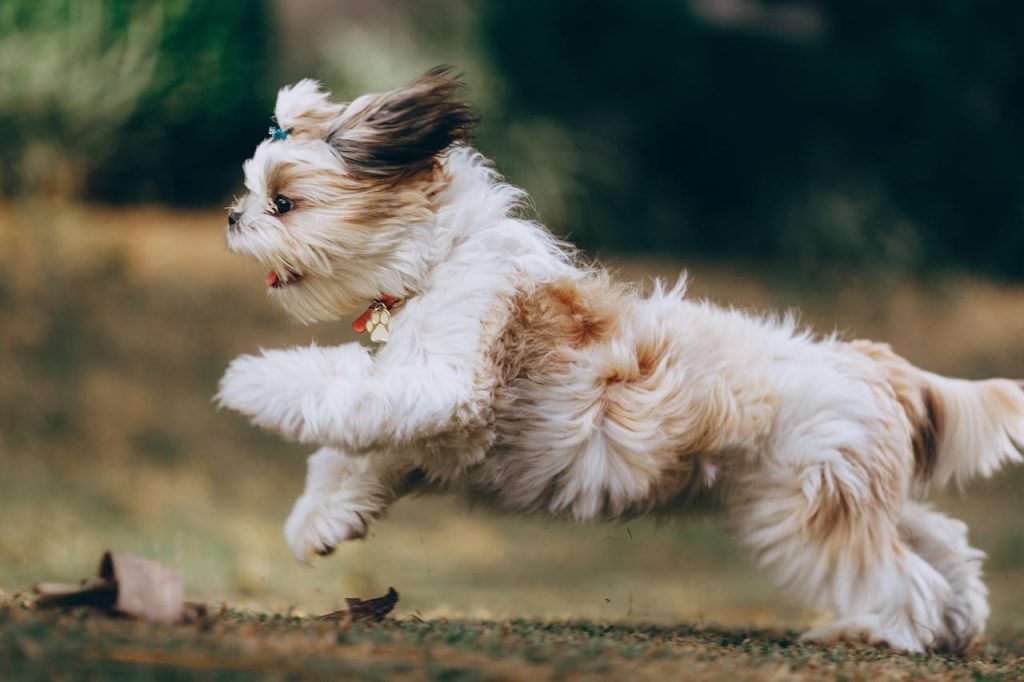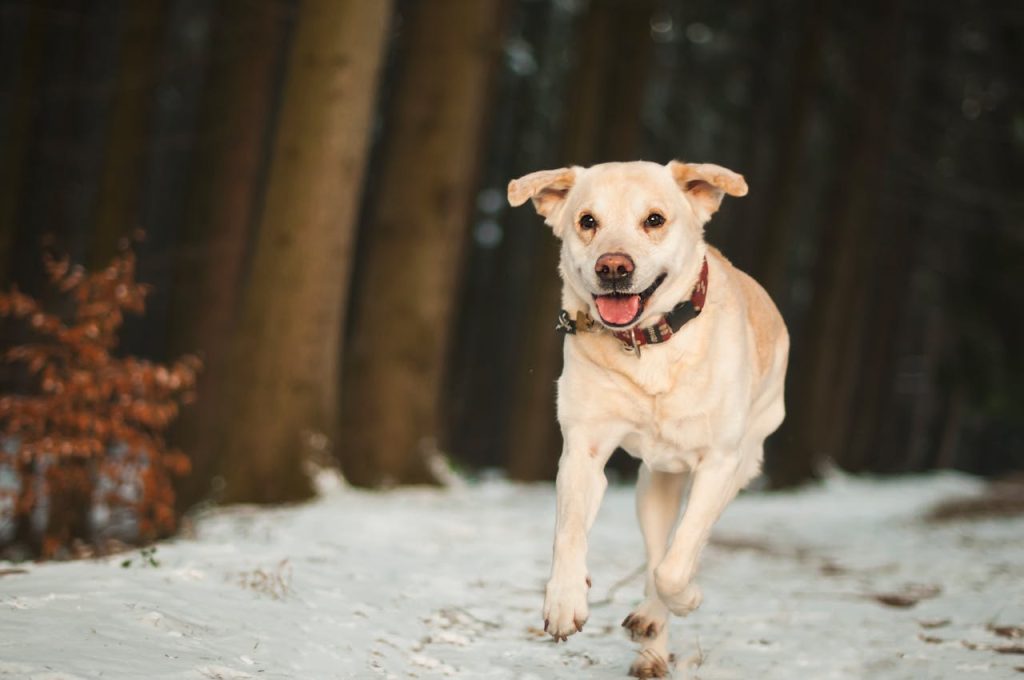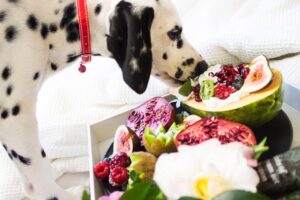Kabocha squash, a type of winter squash, is rich in fiber, vitamins A and C, and low in calories. It’s safe for dogs in small amounts, offering potential health benefits. However, moderation is crucial to avoid digestive issues when incorporating it into dogs’ diets.
In this post, we’ll see whether you can feed your dog kabocha squash, what are its benefits, harmful effects and most importantly, things to know (facts) about kabocha squash. Additionally, we would also take a look at the nutritional value and the proper way to feed dogs, kabocha squash. Finally, we will answer the most important questions about this topic and share the final verdict.
But, firstly – let’s see, can dogs eat kabocha squash?

Table of Contents
ToggleCan Dogs Eat Kabocha Squash Safely?
Yes, dogs can eat kabocha squash in moderation. Offer 1-2 tablespoons, diced or steamed. Remove seeds and peel before serving. Kabocha is rich in fiber, vitamins A and C, aiding digestion and boosting immunity. However, excessive consumption may cause stomach upset in dogs.
Benefits of Feeding Your Dog Kabocha Squash (3 Benefits)
Kabocha squash is beneficial to dogs. Here is a list of three benefits of kabocha squash for dogs:
- Improved Digestive Health: Kabocha squash is rich in fiber, aiding digestion and promoting regular bowel movements for dogs.
- Enhanced Immunity: Packed with vitamins A and C, kabocha squash boosts dogs’ immune systems, helping them stay healthy and fight off infections.
- Weight Management: Low in calories and high in nutrients, kabocha squash can help dogs maintain a healthy weight when incorporated into their balanced diet.
Harmful Effects of Feeding Your Dog Kabocha Squash (2 Harms)
Kabocha squash can be harmful to dogs. Here is a list of two harmful effects of kabocha squash for dogs:
- Digestive Upset: Excessive consumption of kabocha squash may lead to digestive issues such as diarrhea or stomach discomfort in dogs.
- Obstruction Risk: The seeds and tough skin of kabocha squash pose a choking hazard or risk of intestinal blockage in dogs if ingested.
Things to Know About (Facts) about Kabocha Squash
In this section, we will discuss some facts and things to know about kabocha squash.
| Attribute | Description |
|---|---|
| Type | Kabocha squash belongs to the species Cucurbita maxima. |
| Appearance | It has a squat, round shape with dark green skin and orange flesh. |
| Nutrients | Rich in fiber, vitamins A and C, potassium, and beta-carotene. |
| Flavor | Sweet and nutty, with a smooth texture when cooked. |
| Cooking Methods | Can be baked, steamed, boiled, or roasted for various dishes. |
| Origin | Originally cultivated in Japan, now grown worldwide. |
| Seasonality | Typically harvested in the fall and winter months. |
| Storage | Store in a cool, dry place for several weeks to months. |
| Health Benefits | Supports digestive health, boosts immunity, aids weight management. |
| Precautions | Remove seeds and tough skin before feeding to dogs. |
Nutritional Value of Kabocha Squash
In this section, we will discuss the nutritional value of kabocha squash.
| Nutrient | Value per 100g | Unit |
|---|---|---|
| Calories | 33 | kcal |
| Carbohydrates | 8 | grams |
| Fiber | 1.7 | grams |
| Protein | 1.2 | grams |
| Fat | 0.1 | grams |
| Vitamin A | 2950 | IU |
| Vitamin C | 21 | mg |
| Vitamin E | 1.1 | mg |
| Vitamin K | 6.9 | mcg |
| Potassium | 290 | mg |
| Magnesium | 12 | mg |
| Calcium | 21 | mg |
| Iron | 0.4 | mg |
| Phosphorus | 33 | mg |
| Zinc | 0.3 | mg |
| Copper | 0.1 | mg |
| Manganese | 0.2 | mg |
| Selenium | 0.4 | mcg |
How to Feed Dogs Kabocha Squash?
Here we will explain in four proper steps how to properly feed your dog Kabocha squash:
- Wash thoroughly: Rinse the kabocha squash under running water to remove any dirt or contaminants.
- Remove seeds and skin: Peel the squash and scoop out the seeds, as they can be a choking hazard for dogs.
- Cook appropriately: Steam, boil, or bake the kabocha squash until it’s soft and easily mashable.
- Serve in moderation: Offer small, bite-sized pieces of cooked kabocha squash as a treat or mix it into your dog’s regular food.
Things to Take Care of (Precautions) before feeding your Dog Kabocha Squash:
- Always remove seeds and tough skin to prevent choking hazards.
- Introduce kabocha squash gradually to monitor for any adverse reactions.
- Serve in moderation to avoid digestive upset.
- Consult with your veterinarian before introducing new foods to your dog’s diet.

Can Dogs Eat Alternative Forms of Kabocha Squash?
In this section, we will discuss if dogs can eat alternative forms of kabocha squash such as cooked kabocha squash, baked kabocha squash and more.
Can Dogs Eat Raw Kabocha Squash?
No, dogs should not eat raw kabocha squash. Raw kabocha squash may be difficult for dogs to digest and could potentially cause gastrointestinal upset or blockages due to its tough texture and seeds. It’s best to avoid feeding raw kabocha squash to dogs.
Can Dogs Eat Cooked Kabocha Squash?
Yes, dogs can eat cooked kabocha squash in moderation. Cooking kabocha squash makes it easier for dogs to digest and reduces the risk of gastrointestinal issues. Remove seeds and tough skin before feeding, and offer small, bite-sized pieces as an occasional treat or addition to their regular diet.
Can Dogs Eat Steamed Kabocha Squash?
Yes, dogs can eat steamed kabocha squash. Steaming kabocha squash helps soften it, making it easier for dogs to chew and digest. Remove seeds and tough skin before steaming, and serve in moderation as part of a balanced diet for your dog.
Can Dogs Eat Baked Kabocha Squash?
Yes, dogs can eat baked kabocha squash. Baking kabocha squash enhances its flavor and texture, making it a tasty and nutritious treat for dogs. Ensure to remove seeds and tough skin before baking, and offer small amounts of baked kabocha squash as an occasional snack or meal supplement for your furry friend.
What are the Vegetables other than Kabocha Squash that Dogs Can Eat?
Dogs can safely eat various vegetables besides kabocha squash, including:
- Carrots
- Green beans
- Sweet potatoes
- Pumpkin (cooked, not raw)
- Zucchini
- Broccoli (in small amounts)
- Spinach (in moderation)
- Peas
- Celery
- Cucumbers (without seeds)
- Brussels sprouts (cooked)
- Cauliflower (in moderation)
Frequently Asked Questions (FAQs)
In this section, we will discuss some frequently asked questions regarding kabocha squash and feeding them to dogs.
What are the nutritional benefits of kaboacha squash for dogs?
Kaboacha squash, also known as Japanese pumpkin, is rich in vitamins A, C, and E, and contains dietary fibers that aid digestion. Unlike other squashes, its attributes are milder in flavor and denser in nutrients, making it a beneficial addition to a canine diet.
Is kaboacha squash safe for all dog breeds?
Yes, kaboacha squash is safe for all dog breeds. This type of squash is a nutritious vegetable, low in calories, and high in fiber, which contrasts with other vegetables that may be toxic to dogs, like onions and garlic.
How does kaboacha squash compare to butternut squash in terms of fiber content for dogs?
Kaboacha squash has a higher fiber content compared to butternut squash, offering better support for canine digestive health. Its dense, sweet flesh also makes it more palatable for dogs, unlike the lighter texture of butternut squash, which may be less appealing to some pets.
What vitamins are found in kaboacha squash?
- Vitamin A: Essential for vision health.
- Vitamin C: Supports the immune system.
- Vitamin E: Acts as an antioxidant.
Conclusion
In conclusion, while kabocha squash offers nutritional benefits to dogs, moderation is key due to its high fiber content. Dogs can enjoy kabocha in small, cooked portions, providing vitamins and fiber. However, excessive consumption may lead to digestive issues. Thus, mindful feeding ensures canine health and enjoyment.



